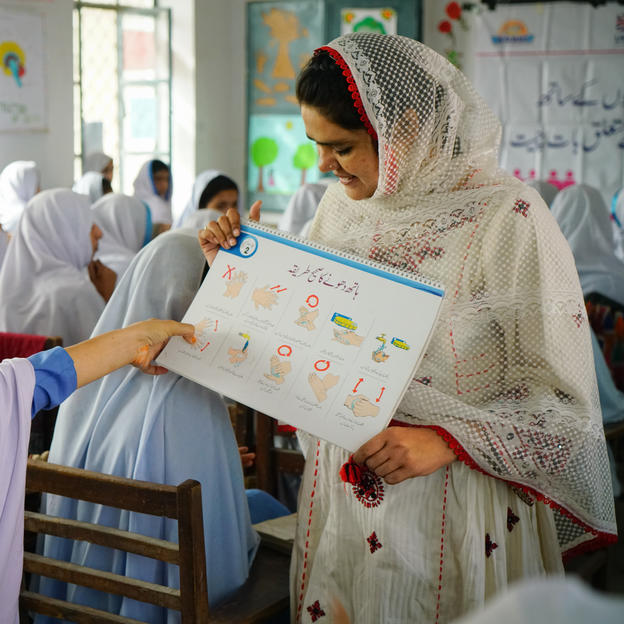Statistics can look stark. 1 in 10 don't have clean water close to home. 2.2 billion people, that's 1 in 4 people, don't have safe water.
But thanks to people like you, we've reached more than 29 million people with clean water.
That's 29 million more healthy and independent people in the world.
29 million more people contributing to the economic vitality of the community.
Helping communities help themselves
29 million people is a great start but we have so much more work to do. By working together, all of us, we can inspire everyone, everywhere to reach their full potential.
This is lasting change. This is how we have worked since 1981.
We are WaterAid and with your help, we can end the water crisis.
2.2 billion
2.2 billion people in the world do not have safe water.
2.2 billion people in the world do not have safe water.
WHO/UNICEF (2023). Progress on household drinking water, sanitation and hygiene 2000-2022: special focus on gender.
3.5 billion
3.5 billion people in the world – almost half of the world's population – do not have access to a decent toilet where waste is safely managed.
3.5 billion people in the world – almost half of the world's population – do not have access to a decent toilet where waste is safely managed.
WHO/UNICEF (2023). Progress on household drinking water, sanitation and hygiene 2000-2022: special focus on gender.
2 billion
Almost 2 billion people in the world – one in four – lack soap and/or water to wash their hands at home, if they have a place at all.
Almost 2 billion people in the world – one in four – lack soap and/or water to wash their hands at home, if they have a place at all.
WHO/UNICEF (2021) Progress on household drinking water, sanitation and hygiene 2000-2020. Joint Monitoring Programme. Geneva: World Health Organisation.
Every minute a newborn dies from an infection caused by lack of safe water and an unclean environment.
Every minute a newborn dies from an infection caused by lack of safe water and an unclean environment.
(WHO, 2015)
Diarrhea caused by unsafe water, sanitation and hygiene kills a child under 5 every 2 minutes.
Diarrhea caused by unsafe water, sanitation and hygiene kills a child under 5 every 2 minutes.
WHO (2023). Burden of disease attributable to unsafe drinking-water, sanitation and hygiene: 2019 update
Around the world, up to 443 million school days are lost every year because of water-related illnesses.
Around the world, up to 443 million school days are lost every year because of water-related illnesses.
(Human Development Report, 2006)
Every $1 invested in water and toilets returns an average of $4 in increased productivity.
Every $1 invested in water and toilets returns an average of $4 in increased productivity.
(WHO, 2012)
Handwashing is one of the most cost-effective health interventions. Every $1 spent on hand hygiene saves $15 on healthcare.
Handwashing is one of the most cost-effective health interventions. Every $1 spent on hand hygiene saves $15 on healthcare.
UNICEF/WHO (2021). State of the World’s Hand Hygiene: A global call to action to make hand hygiene a priority in policy and practice.
If everyone, everywhere had safe water at home, the number of diarrheal deaths would be cut by 35%.
If everyone, everywhere had safe water at home, the number of diarrheal deaths would be cut by 35%.
WHO (2023). Burden of disease attributable to unsafe drinking-water, sanitation and hygiene: 2019 update.
In 2023 we received the 2023 Platinum Seal of Transparency from Guidestar for the fourth year running
In 2023 we received the 2023 Platinum Seal of Transparency from Guidestar for the fourth year running
Guidestar, 2023

Since 1981 we've reached more than 29 million people with clean water.
Since 1981 we've reached more than 29 million people with clean water.
(WaterAid, 2020)
